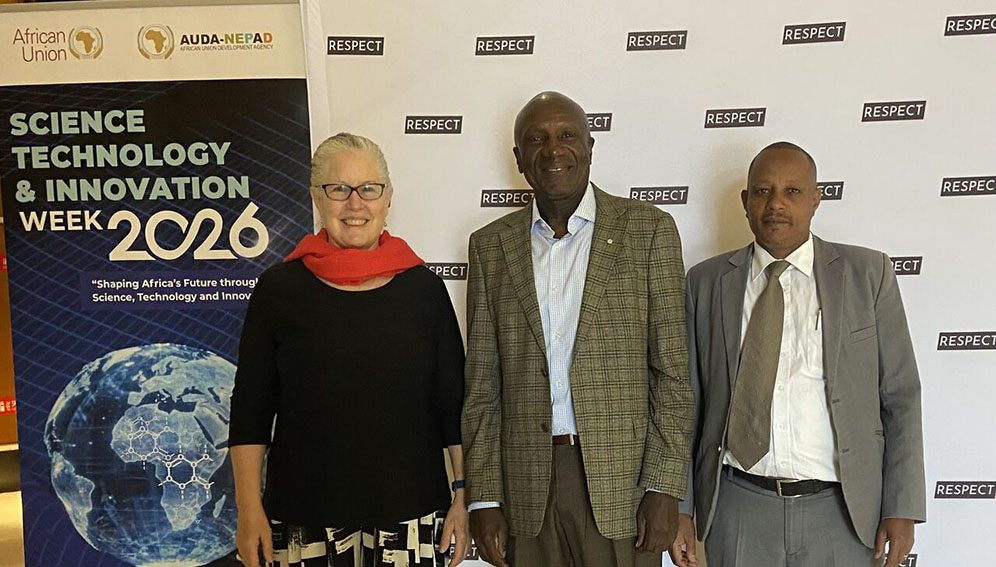SGCI News
The African Technology Policy Studies Network (ATPS) and the African University of Science and Technology (AUST) have kicked off a series of events to boost research and innovation funding in…
The African Technology Policy Studies Network (ATPS) and the African University of Science and Technology (AUST) have kicked off a series of events to boost research and innovation funding in West Africa. The activities started in Senegal with meetings on fundraising, grant call online management and Public Private Partnership development, among other subjects. The events continue throughout October and November across West Africa covering a wide range of subjects, from resource mobilization to gender equality strategies.
The Role of Science Granting Councils
Science Granting Councils in Africa play an important role. They support the innovation and research that drives economic and social development. Importantly, these councils are responsible for funding research as well as many aspects that connect to research. For example, they are responsible for ensuring the quality of research. They make policies about research and share scientific knowledge. Moreover, they train people who work in the field of science and build their capacity. Since research and innovation are always changing, it is important to continuously improve the councils’ ability to meet all these responsibilities.
In West Africa, fewer countries have agencies dedicated to research and innovation funding than other regions of Africa. The Science Granting Councils Initiative (SGCI) in sub-Saharan Africa is helping to strengthen these agencies in West Africa. In 2023, a project was launched to do just this. Running until 2025, it aims to improve existing agencies in three countries: Burkina Faso, Côte d’Ivoire and Senegal. The project is also helping to establish new agencies in Ghana, Nigeria and Sierra Leone.
Building Capacity and Fostering Collaboration
The project is aptly named Strengthening the National Research and Innovation Funding Agencies in West Africa. ATPS and AUST are carrying out the project, working with other Collaborating Technical Agencies (CTAs). Their overall goal is to provide the necessary support and training to strengthen research and innovation funding agencies in these six West African countries.
To do this, the project team created three main areas of focus or Work Packages:
Work Package 1: Analyzes the current situation and assess the needs of the research and innovation funding system in these six countries.
Work Package 2: Provides training and technical support to improve existing agencies in Burkina Faso, Côte d’Ivoire and Senegal.
Work Package 3: Helps to set up new research funding agencies in Ghana, Nigeria and Sierra Leone.
The project is based on a wealth of experience, spanning over 40 years, brought by the consortium partners. It uses best practices and international standards for research funding. The support and training provided will strengthen the capacity of agency staff to deliver excellent research support. This will be particularly the case in research and innovation funding. Additionally, the project aims to create more opportunities for collaboration and knowledge-sharing among agencies through a community of practice (COP) in the region.
Expected Outcomes
In terms of expected outputs and outcomes, the project will help people better understand how research and innovation funding works in these six West African countries. This includes aspects such as their key institutions, players and policies. Using the ATPS online platform, the agencies involved in the project will have more opportunities to share knowledge and work together. The project will also boost the agencies’ ability to manage research funding more effectively. At the same time, it will help the people involved gain the skills needed to run the agencies more effectively and take part in high-level decision-making.
Learn more about the project here
Learn more about the series of events in October and November here
Related News
Building Africa’s science future: inside the SGCI alliance
As Phase 3 of the Science Granting Councils Initiative launches on the margins of the African Union Summit in Addis Ababa last week, the SGCI Alliance Chair explains why this moment marks a decisive turning point for African science. Cephas Adjei Mensah describes what is…
Open call: Support for science granting councils in Sub-Saharan Africa
The International Development Research Centre (IDRC), through the Science Granting Councils Initiative (SGCI), has launched a call for proposals to support science granting councils in Sub-Saharan Africa in the establishment and operationalisation of the Capacity Strengthening Hub under Phase III of the SGCI-3. The Hub…
SGCI phase 3: USD 42M boost for Africa’s STI agenda
It was an exhilarating moment as the Science Granting Councils Initiative (SGCI) Phase 3 funding announcement was officially made yesterday during the Science, Technology, and Innovation (STI) Week 2026, held in Addis Ababa, Ethiopia. The STI Week, organised by AUDA-NEPAD and the African Union and…
SGCI funded projects
Rwanda’s integrated approach to sustainable agriculture and nutrition
Project Titles & Institution Areas of Research Number of Projects being funded Project Duration Grant Amount In-Kind Distribution Council Collaboration with other councils





